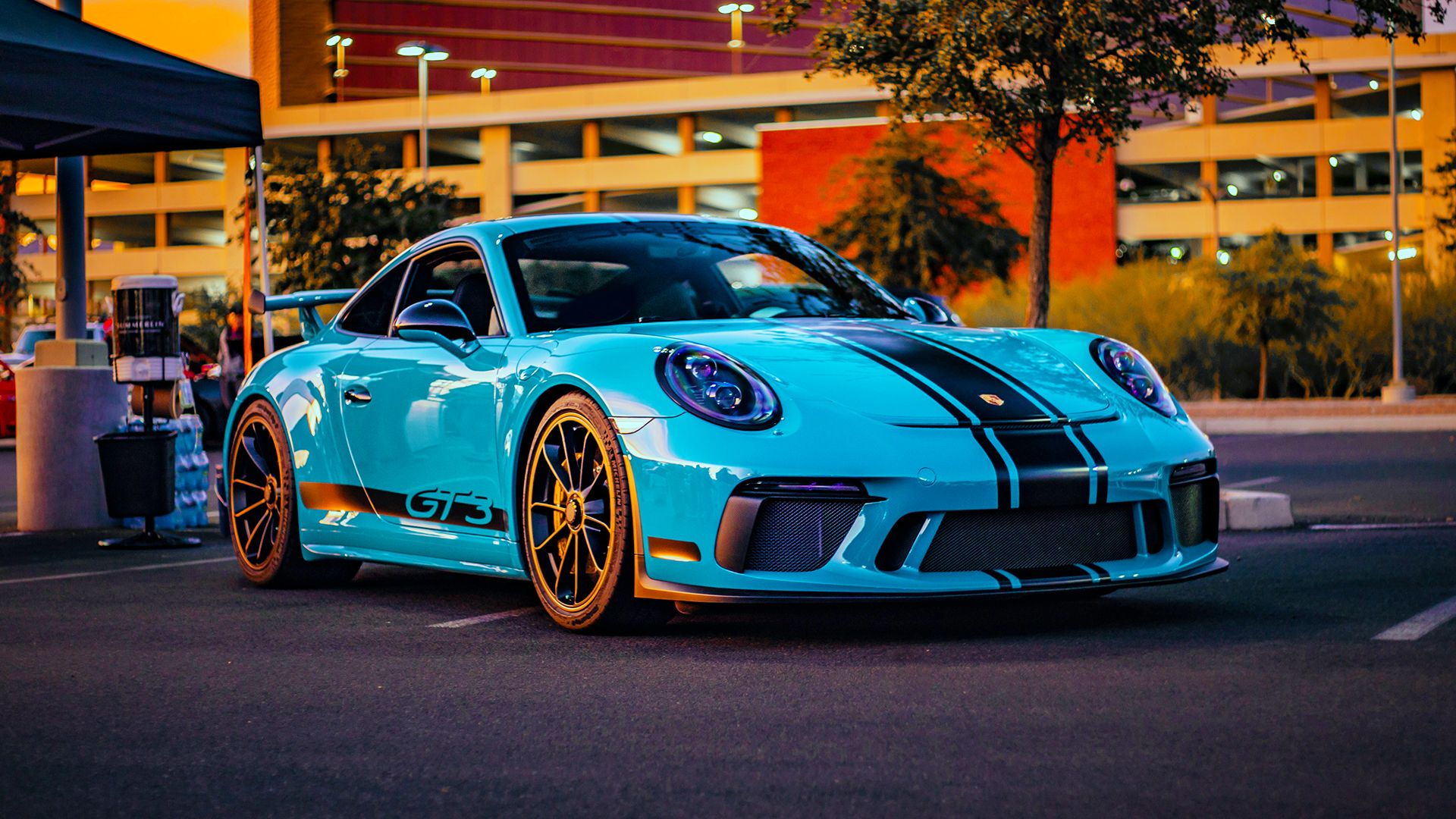
10 SECRETS PORSCHE OWNERS WILL NEVER TELL YOU
Porsche is one of the most iconic automobile manufacturers who have perfected the art of making well-engineered, exciting sports cars. Popular models like the iconic 911s are recognized around the world and is well appreciated by auto enthusiasts. The timeless design of the 911 has even won the hearts of non-enthusiasts, which has helped Porsche to become one of the most successful sports car manufacturers ever.
Apart from the 911, the German manufacturer has also created other revolutionary sports cars like the 959, 356, Cayman, Boxster, and 928. All these fantastic sports cars have increased their community and ownership to a wide range of customers. But to increase brand's the reach even further and appeal to a broader audience based on practicality, it has its own performance SUV lineup that includes the Macan and Cayenne, and a four-door sports sedan, the Panamera.
These models are also packed with luxurious features to offer a premium touch. All these factors make it seem like owning a Porsche is such a wonderful experience, and it is. But just like every car, there are a few things that the owners would not prefer sharing with you about their cars. So here are 10 secrets that Porsche owners will never tell you.
RELATED: Here's How Porsche Plans To Keep Internal Combustion Alive
Sporty Handling May Come With The Sacrifice Of Comfort
Porsche sports cars can be equipped with a number of extra performance goodies, one of which is PDCC or Porsche Dynamic Chassis Control. Available on models like the Porsche 911, Panamera, Taycan, and the Cayenne, it is said to deliver “uncompromised handling and ride characteristics.” This system essentially controls the active roll bars to limit lateral movement when driving. Porsche’s Active Suspension Management system (PASM) takes things up another notch with dampers that will adjust to driving conditions. As an example, the damper force on both acles with increase when sudden steering input is detected or if the vertical movement of the body exceeds a certain threshold.
These systems work wonders for handling and control, especially during spirited driving, but for those not accustomed to driving Porsche sports cars or sports cars at all, the suspension system may come off as too firm or harsh. There are tons of forum posts with lengthy discussions about what is normal and what is not. Nothing is ever backed up with science, but it’s clear that some people simply feel the ride in Porsches equipped with this technology isn’t as smooth as you’d expect.
Porsches Can Expensive To Insure
If you’re looking to buy a Porsche, then you’re well aware, that the type of elegance, luxury, and performance that a Porsche offers does come at a premium. That premium is, no pun intended, also carried over into yearly insurance costs. While we could write pages about different insuracnes for different Porsche models, we’re going to focus mainly on the Porsche 911, which is more expensive to insure than a lot of somewhat comparable vehicles. According to BuyAutoInsurance, it’s more expensive to ensure than a Cadillac ATS-V, Jaguar F-Type, and even an Audi A8
- Porsche 911: $2,080
- Porsche 718 Cayman: $2,026
- Cadillac ATS-V: $1,796
- Jaguar F-Type: $1,796
- Audi R8: $2,488
- Audi TTS: $1,582
- Chevrolet Camaro: $1,472
And, if you’re looking at an older Porsche, it’s quite possible you’ll be left with classic car insurance as your only option. The actual age varies depending on the model, your location, and the insurance company, but the rule of thumb is generally vehicles that range from 10-25 years old. This type of insurance usually includes stipulations that require specific storage and usage limitations.
Maintenance Intervals And Costs
Porsche loves making high-performance vehicles. It has you covered whether you want a performance-oriented sports car or SUV. But all these performance figures come at a price when you consider its maintenance. You see, the German equips its vehicles with many high-quality components to make sure that they can withstand their impressive performance output.
As a result, its maintenance costs may be significantly high compared to those of other vehicles. In a long-term review from Edmunds, you can see that the 2013 Porsche 911 Cabriolet had a cost of $1,163 for its routine maintenance over 12 months. In the same way, if you look at the estimated cost to own a 2022 Porsche Macan in Edmunds and compare it with one of its competitors, the Audi Q5, the Porsche does have a higher maintenance cost. Marketwatch estimates an annual maintainnce cost of $1,192 which is 83 percent higher than the industry average.
Porsche 911 Major Service Requirements
For the 911, there's generally a major service interval every 2-4 years of ownership. This major maintenance falls outside of your typical oil change, drive belt change, and tire rotation. Major service includes but is not limited to:
- Change brake fluid
- Replace spark plugs
- Replace tire sealant
- Visual inspection of airbags and replacement as necessary
- Visual inspection of all suspension and replacement as necessary
Additionally, Porsche recommends that you bring your vehicle for maintenance every 10,000 miles or after one year. But most of its models are track-ready from the factory. So if you regularly take yours for track days, it may need more frequent maintenance than recommended, which can be a real hassle. Hence, owners always keep maintenance costs and intervals as their own little secret.
Constant Attention
Owning a Porsche isn’t easy. Maintaining the car and keeping it clean requires a lot of attention. The cars are also finished with high-quality paints that give a pristine appearance to them. Porsche also does a fantastic job of producing a car with a very good interior by using some of the finest materials like leather, Alcantara, carbon fiber, aluminum, high-quality plastics, and even wood. So, these vehicles require a special kind of care to maintain their immaculate condition.
Thankfully, owners often go to great lengths on taking the necessary actions to keep them in the best condition possible, which may include:
- Carefully washing the car without damaging the paint
- Interior care and cleaning
- Seasonal preparations
- Regular performance monitoring and checkups
Performing all these upkeep tasks is very time-consuming and may lead to a mundane conversation unless you’re an auto-enthusiast. So owners generally don’t share the regular maintenance routine for keeping their vehicles in mint condition.
Learning Curve Of Advanced Features And Technology
Porsche includes a wide range of advanced features and technology in its vehicles. But some of these technologies might have a steep learning curve for some owners. The features like advanced launch controls, driving modes, performance data, and connectivity might take some time to get used to.
Similarly, if you want to utilize the full potential of the car, especially its sports cars, you might need to learn advanced driving techniques. These driving techniques can only be perfected with proper training on a closed course or racetrack. Some owners can have a difficult time adjusting to all these techniques and features, which you’ll never hear from them.
RELATED: 8 Porsche Sports Cars That Deserve To Make A Comeback, 2 That Should Stay Dead
Personal Track Times And Incidents
Since most Porsche models are track-ready from the factory, a majority of the owners love taking their cars to the track. They might have a blast driving them on the racetrack. But if they lack the necessary skills, they won’t be able to extract the best lap times out of the car. So their actual personal track times and incidents might be a secret that you will never know.
Sacrifices Due To Priority For Passion
Whether it’s for brand prestige or superb performance, owning a Porsche typically means making sacrifices for the basic needs of a car. If you want to own one of its sports cars, the term sports car itself shouts sacrifices. But its SUVs may also lead to slight sacrifices for you since they are more focused on performance.
Porsche SUV typically have upgraded suspension for better cornering speed. Although SUVs are supposed to provide a comfortable ride in general, the stiff suspension like that of the 2023 Porsche Cayenne means that you won't have the best ride on an unpaved road. Of course, you won’t come to know of this from owners as owning a Porsche is beyond sacrifices and requires a passion for automobiles.
Customization Expenses And Hidden Modifications
Modifications are very popular among Porsche owners. These modifications may range from a simple custom paint job to the addition of body kits. But they may also include extreme performance upgrades like the insane DeMan’s Porsche 718. In fact, there are many dedicated tuning companies that specialize in modifying Porsche vehicles. Most of these companies even specifically focus on restoring and modifying their classic sports cars, like Gunterwerks and Singer.
However, all these customizations are in no way pocket-friendly and may come with substantial costs. So owners are less likely to openly discuss these expenses with you. On the other hand, they might also keep it a secret if they use cheap body kits for their cars. Additionally, there can even also be a number of hidden customizations like engine and suspension tuning that might not be noticeable to you unless the owner mentions them.
RELATED: 10 Things That Separate The Porsche 718 From The 911
Competition Among Owners
The Porsche community is extremely supportive of one another due to their respect and loyalty toward the brand. Yet, there may be friendly rivalries among some owners. They may compare the performance specifications, modifications, or unique features of each other's cars.
It is also common for some owners to compete with their cars on the racetrack, as well as certain driving challenges during car shows and events. Nonetheless, all the owners appreciate and respect each other's passion for the brand and engage in these friendly competitions secretly within with the joy of driving one.
Limited Practicality In Some Models
Porsche makes some of the best sports cars on the planet and is well known for their glorious 911. But sports cars are not designed to offer practicality. They are built with speed and performance in mind, due to which, they might not be suitable for daily use. Its 911, Boxster, and Cayman lineup exclusively come as two-door sports cars that have limited practicality.
On top of that, the 911 models have a rear-mounted engine configuration, whereas the Cayman and Boxster models are mid-engined. As a result, they have limited trunk space. Practicality issues are some of the things that come with the cost of buying these sports cars. So the owners are generally quiet about it.
The Waitlist
Purchasing and driving a Porsche is an exceptional experience. But some of its cars may take a lot of time to be delivered. It produces a number of limited editions and exclusive models, which may be high in demand after their announcements.
So, there may be a waitlist in order just to book them, since many enthusiasts would love to get their hands on one. It might be really annoying for some owners to wait for such a long time for their beloved Porsche.
RELATED: 10 Classic Porsche Cars You Can Buy For Less than $20,000
DIY Repairs And Maintenance
A majority of Porsche owners love to take care of their cars by themselves and perform a good deal of DIY (Do-It-Yourself) maintenance and repair tasks. They prefer not to visit the mechanic or the service center unless really needed, and some even work on their own projects of restoring or modifying their classic models on their own. The level of dedication required to do so is very high and might sound a bit unnecessary to non-enthusiasts. So you will hear about it from the owner only if you are a serious enthusiast.
2023-08-16T02:08:49Z dg43tfdfdgfd
